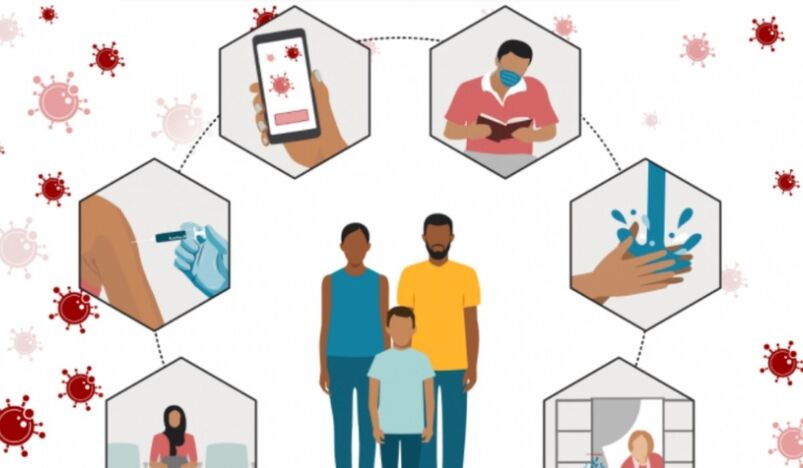
COVID-19: Vaccines alone will not stop Covid spreading - here's why
Many of us are hoping vaccines against coronavirus will enable us to reclaim our old lives. But scientists say jabs alone will not currently be enough to stop the virus spreading and other measures are still needed.
The problem is that no single measure to prevent the spread of coronavirus is 100% effective, and that includes vaccines.
Vaccines
Vaccines are widely regarded as the most powerful weapon in our Covid-19 armoury. Some are more than 90% effective and prevent people getting very sick with the virus and needing hospital care.
But no vaccine is ever 100% and there is a chance we might catch the virus or pass it on even after our jab.
Testing
Widespread testing can find people carrying the virus who are unaware they have it.
But rapid turnaround, or lateral flow tests are imperfect and can miss some cases.
Tracing
Contact tracing systems track down people who have been in close contact with a positive case, to advise them to isolate.
But such schemes need to be fast and reach between 80%-100% of contacts to work effectively.
Self-isolation
Most countries advise people who suspect or know they have Covid to stay at home and avoid others. Some also require travellers to quarantine.
But some people do not follow this advice or are unable to do so.
Masks
Masks and face coverings can block virus droplets from coughs, sneezes and speaking. But even the highest-grade masks still let some virus through.
Masks also need to be worn correctly and used by enough people to make a difference.
Social distancing
Keeping 2m (6ft) away from someone reduces the chance of the virus passing on. But we can still catch it even from further away.
Socialising outdoors
Fresh air cuts the risk of infection and the ultraviolet radiation from sunlight can destroy virus left on surfaces. But the risk outside is not reduced to zero.
Opening windows
The chance of catching the virus increases in areas that are poorly ventilated. The greater the airflow, the lower the risk, but the danger is still there.
Cleaning hands and surfaces
Good hygiene can help stop the spread of the virus, but the risk from particles in the air remains.
As we can see, no single slice of our Swiss cheese will guarantee 100% protection.
It is only by using a number of slices - or measures - that we create the best chance of protecting ourselves and our friends and family.
Australian virologist Ian Mackay, the first to use the Swiss cheese model in relation to the pandemic, says, in reality, the cheese's holes will constantly open, shut and shift location depending on our behaviour.
This is why he and other scientists say, even in places with widespread vaccine coverage, we need to continue using multiple measures to stop the Swiss cheese's holes aligning and letting the virus through.
.jpg)
Qatar Secures Place Among the World's Top 10 Wealthiest Nations
.jpg)
Hamad International Airport Witnesses Record Increase in Passenger Traffic

Saudi Arabia: Any visa holder can now perform Umrah

What are Qatar's Labour Laws on Annual Leave?
Leave a comment